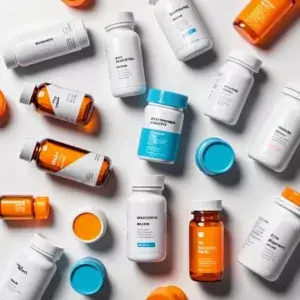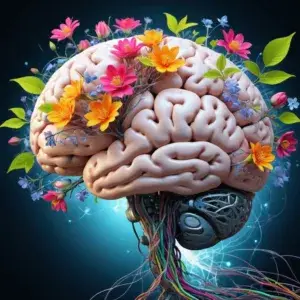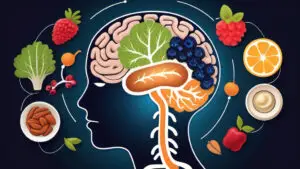Table of Contents
What is Healthy Aging?
Living longer should not result in a loss of physical and mental function. The key to successfully living for a long time lies in maintaining our physical and mental health so that we can enjoy life into our later years.
When I consider the well-being of seniors, brain health emerges as a paramount concern. Aging can bring about changes in cognitive function, making tasks that once seemed simple, progressively challenging. This is why the interest in supplements that promise to bolster brain health is not only understandable but essential.
Healthy aging is more than just managing physical health; it encompasses maintaining mental agility and warding off cognitive decline. That’s where brain health supplements step in, offering a beacon of hope for many seniors eager to preserve their mental acuity. As we are living longer, maintaining brain health and cognitive function becomes ever more important. Since 2000, the incidence of Alzheimer’s Disease in the US has risen by more than 145%.
The crux of the matter lies in not just any supplement, but identifying those that are beneficial and grounded in scientific research. In a sea of options, it is imperative to discern supplements that can genuinely contribute to seniors’ quality of life.
This brings us to a pivotal question: How effective are these brain health supplements, and can they live up to their claims?
The next section will delve into the scientific backing of these products to separate fact from fiction.
The Science Behind Brain Health Supplements: Sifting Fact from Fiction
It’s crucial to approach the topic of brain health supplements with a discerning eye. When discussing supplements like Omega-3 fatty acids, Ginkgo Biloba, and B Vitamins, the conversation must be rooted in science, not just anecdotal evidence.
Omega-3 fatty acids, for example, are often touted for their anti-inflammatory properties and potential to support cognitive function. Research, however, presents a mixed bag: while some studies demonstrate a positive impact on brain health, others show minimal effect. Seniors considering Omega-3 supplements should weigh these studies carefully.
Ginkgo Biloba is well-known for its traditional use in enhancing memory. Yet, the scientific community is divided on its efficacy, with some studies showing improvements in cognition and others failing to replicate these results. The complexity of the human brain and individual differences can make it hard to draw definitive conclusions.
B Vitamins, particularly B12, B6, and folic acid, are essential for brain health, playing a role in reducing homocysteine levels that are linked to cognitive decline. Nonetheless, supplementing with high doses without a physician’s guidance can lead to adverse effects and should be done cautiously.
When considering the safety of these supplements, interactions with prescription medications are a major concern for seniors. Furthermore, the placebo effect—a patient’s perceived improvement due to the belief in a treatment’s efficacy—must also be acknowledged in assessing the true value of any supplement.
Ensuring that seniors have accurate information is paramount. Emphasizing the role of empirical evidence helps seniors and their caregivers make more informed decisions about incorporating supplements into their overall brain health strategy.
Personalized Brain Health: Matching Supplements to Individual Needs
Understanding that one size does not fit all in supplementation is crucial when it comes to brain health for seniors. Just like a tailor adjusts a suit to fit an individual’s measurements perfectly, healthcare providers can help customize a supplement plan to fit a senior’s specific health profile and needs.
Consulting with a doctor before starting any new supplement regimen is vital. A healthcare professional can consider a senior’s pre-existing conditions, current medications, and overall health goals to ensure that the chosen supplements will offer the most benefits without causing adverse effects.
Genetic, lifestyle, and environmental factors also play integral roles in determining the appropriate supplements for brain health. It’s important for seniors and their caregivers to discuss these aspects with their healthcare provider to make informed decisions.
Some seniors may benefit from certain supplements like Vitamin D if they have limited exposure to sunlight, whereas others may need to focus on antioxidants to combat oxidative stress if they live in areas with high pollution. Each individual’s circumstances and health status guide the decision-making process.
This personalized approach not only optimizes the potential benefits of brain health supplements but also supports the overall well-being of seniors, contributing to their quality of life. With the right guidance and personalized choices, supplementation can play a part in a comprehensive plan for maintaining brain health.
Lifestyle and Diet: The Foundation of Brain Health for Seniors
It’s crystal clear: no pill is a magic bullet for brain health. As I dive into the topic of brain health supplements, I emphasize that they are intended to complement a robust lifestyle and nutritious diet, not to replace them. Senior brain health flourishes on the bedrock of a lifestyle rich in physical activity, mental stimulation, and a balanced diet.
A brain-friendly diet is often rich in fruits, vegetables, whole grains, and lean proteins; think of the Mediterranean diet which has been associated with lower rates of cognitive decline. Regular physical activity is equally essential, increasing blood flow to the brain and fostering new neuronal connections. Mental exercises, such as puzzles and continued learning, challenge the brain and can contribute to brain plasticity.
I can’t stress enough the role of a comprehensive lifestyle approach to maintaining cognitive function. Supplements can fill in some gaps, but they can’t create the foundation. Research consistently points to lifestyle factors as the MAIN DRIVERS of long-term brain health. Anecdotal evidence and some studies suggest that individuals who maintain an active, engaged lifestyle tend to experience slower cognitive decline.
Finally, the impact of socialization must not be underestimated. Regular interaction with friends and family can stave off depression and stress, both of which can take a toll on brain health. Seniors who are socially active often show better cognitive function.
With this foundation in mind, it’s also important to be well-informed when selecting supplements. In the next section, I will provide detailed guidance to help seniors and caregivers navigate the marketplace of brain health supplements with confidence.
Brain health supplements for seniors cannot overcome the limitations of a poor diet, lack of exercise, and not enough sleep. Supplements can however help to augment good lifestyle practices to allow us to function even better into our senior years.
Navigating the Market: Smart Choices in Brain Health Supplements for Seniors
Your takeaway here should be a sense of EMPOWERMENT in your ability to make informed choices about brain health supplements. Seniors and caregivers alike need to approach the saturated supplements market with a critical eye. Here’s how:
First, identify trustworthy brands and sources. Look for companies with a strong reputation for quality and transparency. Check if their products have been third-party tested for purity and potency.
Second, become a label expert. Learn to decipher ingredient lists, recommended dosages, and certifications such as USP or NSF. If a claim on a supplement seems too good to be true, it probably is.
Avoid products that promise immediate or miraculous results. Real brain health support is not instantaneous and is best achieved through consistent, long-term use of evidence-based supplements, combined with lifestyle factors.
Use resources like the National Institute on Aging or consult a health care professional when in doubt. They can offer guidance and help you navigate the claims and science behind brain health supplements.
Remember, the PRIORITY is your health and well-being. Smart, informed choices lead to better outcomes for senior brain health. Supplements are tools, not magic pills, and should be used sensibly and safely as part of an overall approach to brain health.








